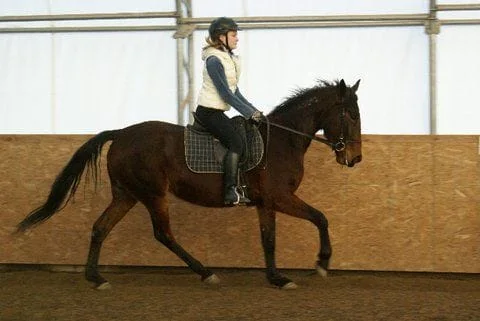As Spring finally seems to be in season, it’s time to talk about getting your equine pets up to date on vaccines. With all the 3 ways/4ways/5ways it can become remarkably confusing to figure out exactly what we are vaccinating our horses for. We figured we’d break down exactly what we (and the American Association of Equine Vets, aka AAEP) recommend vaccinating for, to be both economical and effective for your adult horse’s lifestyle. Starting with Core vaccines - WEE, EEE, West Nile, Tetanus are recommended for all horses, as is Rabies. These are described as below:
West Nile Virus, EEE, & WEE (eastern and western equine encephalitis Virus): These are three mosquito-born viruses that are uncommon but cause severe and often deadly neurologic disease. A not very fun fact is that people can also contract these diseases.
Tetanus: Tetanus is caused by the neurotoxin of bacteria Clostridium tetani, often through puncture wounds or lacerations (like people). Tetanus can be deadly, or at least require long-term intensive care in a hospital setting.
Rabies: Rabies is rare, but present in the Bitterroot valley, and even for horses that do not go on mountainous adventures, there is a risk of exposure through local wildlife. Rabies is essentially always deadly.0305
The good news about the aforementioned core vaccines is that these are very effective vaccines. EEE, WEE, West Nile, and Tetanus are often combined in one vaccine to make a “4-way” aka a “3-way and West Nile”. Having your veterinarian administer the vaccine helps guarantee the efficacy of the vaccine (manufacturers will cover the cost of any problems in a vaccine that for some reason doesn’t work if handled through a veterinary clinic). Rabies legally must be administered by a veterinarian.
The most common “risk-based” vaccine (if your horses are in contact with other horses, either at competitions/shows/rodes, routinely on the trail, or regularly through a fence) is known as the Rhino-Flu vaccine. The two parts of this vaccine are the Equine Herpesvirus (the rhinopneumonitis portion) and Equine influenza (the flu part). Both these viruses usually cause respiratory disease not unlike COVID’s signs, and while not always severe, are relatively common, especially when a bunch of horses are brought together. For this reason, horses that get around may need this vaccine as well (combining this vaccine with the “4-way” makes what is often called a “5-way” or “6-way” depending on who you ask).
This is definitely not an exhaustive list of all the vaccines for horses, and there is a vaccine specific to pregnant horses, as well as horses at risk for Strangles (another important disease for another day), as well as other less common diseases. However, this post provides a baseline for considering what to vaccinate your equid friends for to best protect them effectively from these diseases. For more information, consider visiting Vaccination Guidelines | AAEP , or contact our large animal vet, Magdi Niedermeyer, at 406-777-3844 ext 3 with questions or to schedule an appointment to get your hooved critters up to date as we finally get some proper spring weather!



